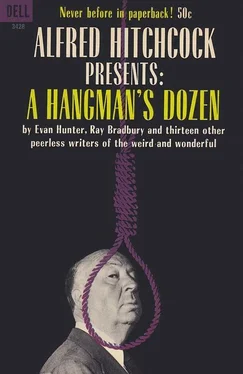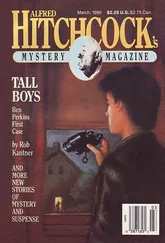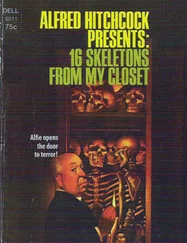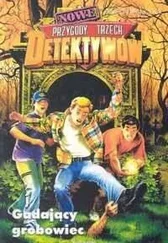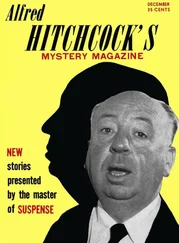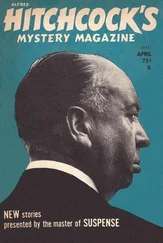“Downstairs. You wanted jail, didn’t you?”
Getting to his feet, Cooper began putting his possessions back in his pockets. “Well, finally,” he said. “It’s certainly hard to get arrested around here.” Then he paused with his key ring in his hands. “It’s all right to take my things back, isn’t it?”
“For now,” Sam said. “They’ll check them for you downstairs.”
Cooper returned the rest of the items to his pockets. He emitted a relieved sigh.
“Now I won’t have to worry any more,” he said.
“About what?” I asked.
“Getting in trouble.”
“What kind of trouble?”
“You know,” he said vaguely. “I forget things when I black out. Later people tell me I’ve done things I shouldn’t.”
“Like what?” I asked.
“Oh, different things. Get belligerent, maybe. Start a fight.”
“You have a fight somewhere?”
“No, no,” he said quickly. “I was just giving an example.”
I said, “You turned in here to keep from getting in a fight?”
He pursed his lips. “Well, you might say that.”
“With who?”
“A friend of mine,” he said reluctantly.
“He got a name?”
“Henry Marks,” he said even more reluctantly. “My next-door neighbor.”
Sam asked, “You have some trouble with this Marks?”
“Not trouble,” Cooper said with a shake of his head. “He’s been hanging around my wife, is all. I just told him to stay away.”
Sam looked at me. “That name ring a bell, Sod?”
I shook my head. “Not to me.”
Sam puzzled over it for a moment then walked over to the bulletin board. After glancing it over, he nodded with satisfaction.
“Thought I’d seen it,” he announced. “On the M.P. bulletin. Henry Marks has been missing since last Friday.”
We both stared at George Cooper, who suddenly looked uncomfortable.
“You better sit back down again, Mr. Cooper,” I said. “We’ve got a lot more talking to do.”
It took us another half hour to get about half a story out of Cooper. At first he insisted he knew nothing of Henry Marks’s whereabouts. But eventually he began to change his story. He admitted having a fight with Henry Marks when he discovered him in his home. But he insisted that it hadn’t been much of a fight and that the missing man was all right when he left Cooper’s home immediately after the fight. He further insisted that the fight had taken place only the previous night. According to the M.P. report, at that time Marks had been missing three days.
I said, “Last night was Monday. You sure this fight didn’t take place Friday?”
“Of course I’m sure,” he said in a sullen voice.
“Maybe you had one of your blackouts,” Sam suggested. “Maybe you lost a couple of days.”
Cooper said, “Listen, it was last night. I was blacked out, but the fight sobered me up. When I saw what I’d done—”
He stopped abruptly and stared from one to the other of us, appalled at his slip of the tongue.
“Go on,” I said quietly.
“I mean — you see, I don’t remember the fight at all. Don’t remember coming home — anything about it. My wife had to tell me.”
“Tell you what?” I asked.
Cooper looked from me to Sam with a trapped expression on his face. He opened and closed his mouth twice before he finally got anything out.
“I may as well tell you,” he finally managed. “I meant to when I came in.”
“Go ahead,” I told him.
“I got cold feet. I meant to tell the whole thing when I came here. Then I got scared.”
Sam and I waited.
After a long pause, he said in a bare whisper, “I killed him.”
The man dropped his face in his hands. We sat watching him and after a moment he listlessly dropped his hands to his sides and sat in a dejected attitude, his head down.
“Want to tell us about it?” I inquired.
He told us then. Once he had brought himself to admit the crime, he answered everything we asked willingly, but without spirit. He said he had left his home in a mildly intoxicated condition about 8:00 p.m. the previous Friday. After a round of taverns and night clubs, he had checked into a hotel and continued drinking in his room. Saturday, Sunday and Monday were largely blank. Except for brief periods he recalled nothing until he was awakened on his front-room couch by his wife shaking him. Henry Marks lay on the floor dead, his skull crushed by a pair of fire tongs.
I said, “You remember nothing at all about the fight?”
“Just what Helen told me,” he said dully. “She saw it.”
“What’s her story?”
“I came staggering in, found Henry there and accused him of chasing Helen. One thing led to another, and finally he hit me.” He felt of his jaw. “Ought to remember that. Still hurts. But I don’t.”
“Then what happened?” I asked.
“Helen says I fell near the fireplace. When I got up, I had the tongs in my hand. I swung them and George dropped.” His voice grew tired. “That’s all there is to it.”
“Not quite,” I said. “There’s still one small item you haven’t covered. What did you do with the body?”
“Oh, that,” he said almost with indifference. “I buried him in the back yard.” After a pause, he offered, “I’ll show you right where, if you’d like.”
We told him we’d like. Booking him on suspicion of homicide, we had him checked out in our custody. Before leaving headquarters, we called the lab and asked for a technician to meet us at Cooper’s home. We suggested he bring along a pair of strong-backed rookies with shovels. Then we drove out to Cooper’s home on Lindell Boulevard.
Cooper lived right across from Forest Park, in one of the richest sections in St. Louis. He, therefore, might very well have been as socially prominent as he had claimed. His home, a two-story affair of tan brick, was set fifty feet back from the street and had about a hundred feet between it and the houses either side.
Sam turned the car into the driveway and parked alongside the house. We all got out and walked around to the back. Leading us to the rear of the yard. Cooper dully nodded toward a freshly-spaded section of garden.
“Right there,” he said in a low voice.
Sam said, “It’s a neat job. Smoothed off nice and even. What’d you do with the extra dirt?”
“Dumped it out back in a ditch.”
“Haw’d you manage such a clean job, as drunk as you were?” Sam asked. “And how come the neighbors didn’t see you?”
“Helen helped me. And it was dark last night. We didn’t use a light except to check up on how it looked afterward.”
The back door opened and a slim, rather pretty woman of about forty came outside. She wore a concerned expression on her face and her eyes widened when she got close enough to see Cooper’s handcuffs.
“What is it?” she asked on a high note. “Are you men police officers?”
I said, “Yes, ma’am. I’m Sergeant Sod Harris of Homicide. This is Officer Sam Wiggens.”
“Homicide?” she said. “Why is my husband handcuffed? George, what is it?”
In a low voice Cooper said, “I told them about it.”
“About what?” She looked at me. “What’s he done?”
“We understood you knew, lady,” I said.
She looked frightenedly from me to Sam and then at her husband. “Knew what?”
“It’s no use, Helen,” Cooper said in a weary tone. “I told them everything.”
Her nervous gaze made another circuit of all three of us. She took a deep breath and said rapidly, “I didn’t have anything to do with it.”
I said, “Afraid it’s not that easy. Your husband says you helped him conceal the body.”
Glancing at Cooper, she nervously worked her hands together.
Читать дальше
